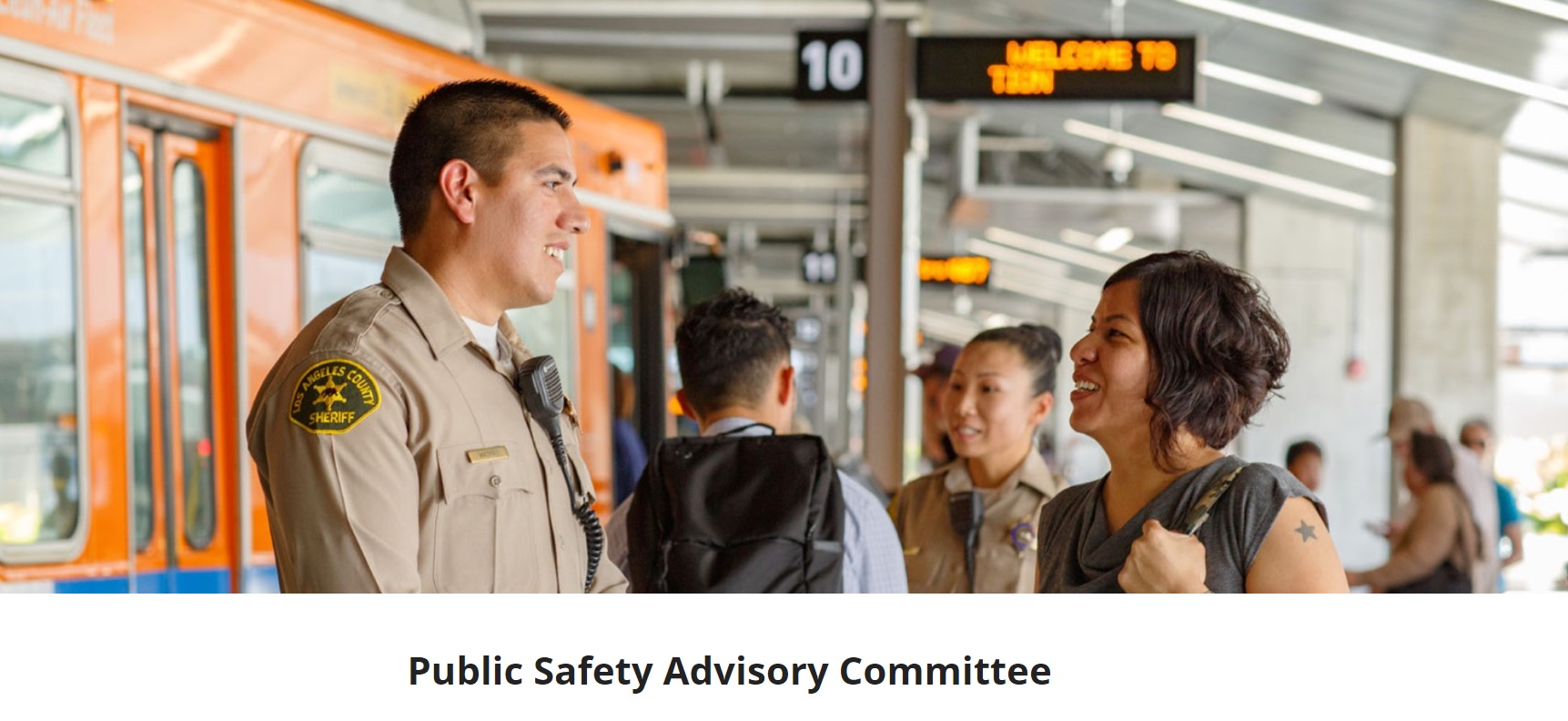For the third time in two months, Metro has postponed approving additional money requested to for its transit policing contract. At yesterday's Metro board Operations Committee meeting, the policing proposal was discussed, but then forwarded to next week's full board meeting with no recommendation.
The funding in question is for Metro's five-year $130+million/year multi-agency contract with LAPD, County Sheriffs (LASD), and Long Beach Police (LBPD). Last month, Metro policing leadership asked for an immediate $110 million to cover 17 percent cost overruns on their current contract. The $110 million was just part of a somewhat opaque $200+ million request to cover past and future overruns, and extend the current contract by six months. For an informative explainer, read the February Investing in Place post, Metro Overspent Its Policing Budget By How Much?!.
What makes the policing request especially troublesome is that it means lots more money for punitive policing when Metro's policing reform process is already underway. In June 2020, the Metro board voted to embed a “community safety approach” in the new policing contract that takes effect in mid-2022. The board called for shifting Metro resources away from an armed response, instead focusing on services and outreach.
Between last month and this month, Metro did trim their request somewhat. What had been a $110 million policing ask was trimmed to $36 million. The six months extra contract extension was taken out, too. While these are perhaps some steps in the right direction, the funds still represent a reward to business-as-usual policing.
Tens of millions of dollars' worth of cost overruns that cut into limited transit operations funds would be a big problem on its own. But what has Metro received for their money?
Metro got a transit police force that criminalized poverty, over-policed code-of-conduct violations, and, in one particularly horrific incident, rolled 23-year-old César Rodríguez in front of a Blue Line train after LBPD detained him for fare evasion, searched him to see if there was some other charge they could levy against him, and then got into a physical altercation with him near the edge of the platform as the train rolled into the station.
Why should Metro reward such a problematic approach? Is it time to pull the plug?
(There is no shortage of models of better ways to achieve a safe transit system - many outlined in the Alliance for Community Transit's recent Metro as a Sanctuary report.)
At this week's Operations Committee, boardmember Mike Bonin - who has championed reimagining public safety at Metro and elsewhere - described the current proposal as "a horrible situation" and "a gun to our head." Metro Chief System Security & Law Enforcement Officer Robert Green continued to insist that the board approve more money or Metro policing would end in mid-2020. Bonin and new boardmember Holly Mitchell pressed Green on just what would happen if the board does not approve the funding, letting the transit policing contract expire. What would this look like for riders? Green repeatedly alluded to how "complex" the police response system is, justifying its continued existence. He also pointed specifically to the presence of unhoused people on the system as a justification, but this is one of the areas where Metro has found an unarmed response to be more effective and less costly.
Metro CEO Phil Washington stressed seeking a "happy medium," noting that "we're trying to get this [policing] right; the whole country is trying to get this right." Washington urged approval of the $36 million now, as a sort of bridge to reforms that he anticipates would be piloted starting in early 2022 (long after he leaves.)
Washington and his board are placing a lot of faith in the Metro Public Safety Advisory Committee set up to oversee reforms. The PSAC was approved in June 2020, and its composition was scheduled to be announced in December for meetings to begin in January. There has been no public announcement of the committee members, though Bonin mentioned that he had been notified who was on it, and Washington announced that it would hold its first meeting next week.
The $36 million request now goes to the full Metro board meeting on Thursday March 25.
It is difficult to interpret the repeated delays in approving transit police funding. These delays show that the Metro board is uncomfortable with business-as-usual policing and papering over massive cost overruns. But perhaps these delays also play into supporting the continuation of past punitive policing practices. As more time passes, so too does some of the urgency (especially the urgency that electeds feel) sparked by the killing of George Floyd by Minnesota Police last May and the widespread Black Lives Matter protests that followed. The longer that Metro law enforcement drags out current practices, the longer it takes to implement reforms, the less pressure electeds feel to make good on their 2020 promises. Continued community pressure is needed to make sure the Metro board truly follows through on the much-needed reimagining of public safety on Metro transit.






